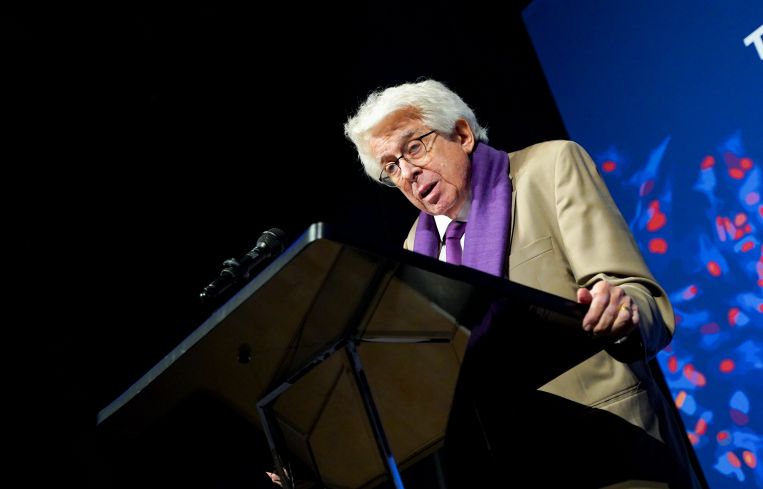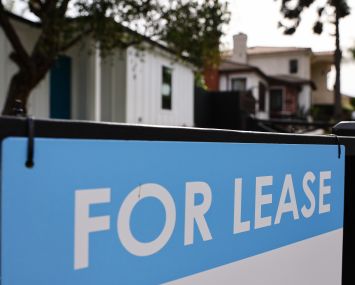Power In Memoriam 2020
The power players who passed on since our last Power 100 list
By Nicholas Rizzi July 27, 2020 9:00 am
reprints
2020 has been a sad, fraught year, and commercial real estate lost a number of the most important figures in the industry since Commercial Observer published last year’s Power 100.
Among those who passed away were the designer of the iconic Louvre; the founder of one of the biggest retail empires in the city, and an advisor on one of the biggest projects in the city’s history as well as someone who whispered in the ear of mayors.
Stanley Chera
1942-2020
Stanley Chera, who made his name with his retail acquisitions and was a longtime friend to President Donald Trump, died April 11 at age 78 due to complications caused by the coronavirus.
The Brooklyn native founded Crown Acquisitions, known for its splashy retail purchases along Fifth Avenue, and helped Trump’s rise to the White House by donating thousands of dollars while using his wide influence to aid him during his campaign.
Chera got his start working at his father’s children’s store in Downtown Brooklyn, the Suzette Kiddie Store, which later was renamed Young World, and jumped into real estate after being frustrated with the amount of cash he forked over to landlords each month.
“I was paying $2,000 a month rent, and I was doing business up to the sky,” Chera told The New York Times in 2010. “I said, ‘What am I doing?’ The building next door came up for sale, so I purchased it and started accumulating properties in the city.”
He later founded Crown Acquisitions — currently run by his sons Richard and Isaac — which owns stakes in the Olympic Tower at 641 Fifth Avenue, the Cartier Mansion at 635 Fifth Avenue, and 450 Park Avenue, according to its website.
“He was a larger-than-life personality,” Jonathan Mechanic, the head of Fried Frank’s real estate group who worked with Chera on several deals, previously told CO. “He was smart, he was funny, he was warm, he was embracing, and he was well-loved by the community — both the Syrian community and [the] real estate community.”
Aside from his political donations, Chera was known for his philanthropic work, giving millions to the Rabin Medical Center, National Jewish Health and charities dedicated to helping special needs children.
Héctor Figueroa
1962-2019
Longtime labor rights activist and influential figure in New York City politics, Héctor Figueroa, died on July 11, 2019, from a heart attack. He was 57.
Figueroa led the powerful property service workers union, 32BJ SEIU, since 2012 and was credited with helping get the state’s minimum wage raised to $15 an hour and the pay for airport workers in New York increased to $19 an hour.
He was born in Puerto Rico to a pair of teachers — who fought to establish a union for educators there — and came to the mainland in 1982, where he lived with his aunt and uncle in the Bronx while obtaining an economics degree, according to 32BJ.
Figueroa got his start in the labor movement when he joined the Amalgamated Clothing and Textile Workers Union in 1990, helping to organize textile workers in North Carolina. He joined 32BJ in 1995 and eventually became the director of Puerto Rico for the union. Figueroa was also a vocal advocate for immigration reform in the country.
In recent years, Figueroa became known for his active Twitter presence, which he used to explain 32BJ’s decision-making processes, spar with critics and outline its support for different policies.
“As a labor leader, I see it as my responsibility to demystify the union movement and be as accessible to members and the larger community as I can,” Figueroa told the Gotham Gazette last year. “Social media offers us a very effective way to communicate with a broader audience and build our collective power.”
Gov. Andrew Cuomo called Figueroa a “towering figure in politics and a hero of the labor community” after his death.
“Héctor was a champion for working people, minorities, the poor, the voiceless,” Cuomo said in a statement. “[He] was an indefatigable force in our fight against Trump’s un-American assault on immigrant communities and a fierce defender of Puerto Rico.”
Howard Klaus
1955-2020
Howard Klaus, the driving force behind the development of Empire Stores in Dumbo, died on June 5 at 65. Klaus’ cause of death was not disclosed, though his family told CO it was unrelated to the coronavirus.
Klaus co-founded the HK Organization with Harry Kotowitz and the pair beat out 10 other developers in 2012 for the chance to redevelop the long-vacant building at 53-83 Water Street on Brooklyn’s waterfront.
HK eventually turned it into the 440,000-square-foot food, retail and office complex, Empire Stores, which hosts the giant food hall Time Out New York Market along with retailers including West Elm.
Klaus was born in Sheepshead Bay, Brooklyn, and after a stint at Wagner College in Staten Island, held various jobs in real estate. Eventually, he opened his own brokerage, rental and property management company, Church Realty, in Brooklyn, when he met Kotowitz in the 1980s. The pair later started the Kay Organization in 1985.
The Kay Organization lasted until 2003, when Klaus and Kotowtiz branched out to form HK, which mainly did affordable housing and condo development until Empire Stores came along.
“I can’t tell you for sure why. We just got along,” Kotowitz previously told CO. “Howie’s got a very tough personality. I can be tough when I have to be. I think we’re just a good balance. We have the same goals and aspirations, and we’ve achieved many of those goals and aspirations through a lot of hard work.”
Jay Kriegel
1940-2019
Jay Kriegel, who made waves as a young advisor to Mayor John Lindsay and later helped Related Companies get Hudson Yards built, died on Dec. 5, 2019, at 79, due to complications from melanoma.
Kriegel first hit New York City’s political scene at 25, when he was recruited, fresh out of Harvard with several other recent Ivy League grads, to Lindsay’s administration in 1965 as part of what was dubbed the “kiddie corps.”
The group helped write sections of the Voting Rights Act of 1965, and Kriegel stayed on as Lindsay’s chief of staff from 1966 to 1975. While in the administration, he was key in forming the Civilian Complaint Review Board, an oversight agency to the New York City Police Department.
He remained a figure in the city’s political scene for years, leading Mayor Michael Bloomberg’s ultimately failed bid to host the 2021 Olympics then serving as a senior adviser to Related on the Hudson Yards development.
Kriegel was born in Brooklyn, graduated from Midwood High School, got a bachelor’s degree in English from Amherst College, then a law degree from Harvard University. Throughout his long career, he served as a senior vice president for news station CBS, the publisher of The American Lawyer magazine and later ran his own consulting firm.
The Real Estate Board of New York honored Kriegel at its 2020 gala, giving him the John E. Zuccotti Public Service Award while members of the event wore white scarfs that Kriegel was known to wear.
Rodrigo Niño
1969-2020
Rodrigo Niño — founder of the high-profile and troubled crowdfunding platform Prodigy Network — died on May 18 at age 50 after a battle with cancer.
Niño went from selling condos in Miami to launching the early crowdfunding company, but stepped down from Prodigy — which was facing lawsuits from various investors — months before his death after an earlier diagnosis of cancer returned.
He was born in Bogotá, Colombia, where he sold his first piece of real estate while still in college. He moved to Miami in the late ‘90s, worked as a residential broker for Fortune International Realty then sold condos for Trump at his 46-story tower in Soho.
In 2003, he launched Prodigy as a development marketing firm, but it became a crowdfunding platform in 2009 after Niño used his network to raise $220 million for Spanish developer Emilio Borella to build a skyscraper in Bogotá, which later ran into troubles, The Real Deal reported.
Prodigy claimed to have raised nearly $650 million for 6,500 investors for projects in New York and Chicago, which included a coworking space, The Assemblage. However, problems arose as returns forecasted to investors weren’t met, with Prodigy halting payments to others, and in 2019 Prodigy was hit with a string of lawsuits from investors. The company has gone dark since Niño’s passing.
I.M. Pei
1917-2019
One of the most revered architects in the world, known for designing the famed glass pyramid at the Louvre museum in Paris along with a string of commercial skyscrapers, I.M. Pei died on May 16, 2019, at age 102.
The Chinese-American Pei got his start fresh out of Harvard University after being hired by William Zeckendorf in 1948 to oversee the design of his buildings, the Times reported. While there he worked on Kips Bay Plaza and Silver Towers in New York City along with the Society Hill Towers in Philadelphia.
But Pei was perhaps best known for his museum designs. Aside from the Louvre pyramid, which was built in 1989, he also worked on the National Center for Atmospheric Research in Colorado, the Everson Museum of Art in Syracuse, the Des Moines Art Center, and the Rock & Roll Hall of Fame and Museum in Cleveland (ironic since Pei notably disliked rock ’n’ roll).
Pei was born in what is now called Guangzhou and grew up in Hong Kong, according to the Times. He was the son of leading banker Tsuyee Pei.
He came to the United States in the 1930s to go to college and eventually graduated from Harvard with a degree in architecture. Pei planned to return to China until Zeckendorf tapped him to head his in-house design team, the Times reported.
Pei settled in Manhattan where he remained until his death.
Burton Resnick
1936-2019
Commercial real estate giant Burton Resnick, who led his father’s firm Jack Resnick & Sons for decades and turned it into an office development goliath, died on Dec. 14, 2019. He was 83.
Resnick took over his father’s company in the 1960s and began building developments all around Manhattan including 110 East 59th Street, 1755 Broadway, 880 Third Avenue, One Seaport Plaza and 255 Greenwich Street. He also served as the chairman of REBNY from 1989 to 1991 and again from 2001 to 2003.
He grew up in the Bronx and New Rochelle before leaving New York to attend the University of Chicago. He came back to the city in 1956 to learn the real estate business from his father, Jack, who founded the company in 1928.
In the late ‘50s, Resnick oversaw the conversion of a Loews Theatre in the South Bronx into a Safeway store and the renovation of four Hudson Square industrial buildings — including 315 Hudson Street, which Google recently partially leased as part of its $1 billion campus in the neighborhood.
He was a noted philanthropist who chaired the board of the Albert Einstein College of Medicine for nearly two decades while also serving on the boards of Weill Cornell Medical College, the Metropolitan Museum of Art, the New York chapter of the Anti-Defamation League, Carnegie Hall and UJA-Federation.
Resnick was also among several real estate figures who lost money after investing with Bernie Madoff, who ran the largest Ponzi scheme in history and defrauded people out of billions.
Gerald “Jerry” Wolkoff
1937-2020
Gerald Wolkoff, prominent Long Island and Queens builder who stirred up controversy at his 5Pointz development in Long Island City, died at age 83 on July 17 from a neurological disease.
The Brownsville native came from poverty and started working at age 10. He founded a floor waxing company at age 16, then started building two-family houses in Brooklyn and Staten Island, becoming the largest developer of homes in the New Springville section of the forgotten borough that he dubbed Heartland Village.
The developer expanded his efforts to Queens and Long Island and became known in recent years for his $4 billion Heartland Town Square project in Brentwood, N.Y., and the $500 million 5Pointz Towers in Long Island City.
Despite tenants describing Wolkoff to CO as a “mensch” who went above and beyond the call of duty, he drew the ire of graffiti fans and artists, and a lawsuit, after he whitewashed the famed 5Pointz murals in 2013.
Wolkoff bought the former factory in 1971 for $1.1 million, which eventually housed artists’ studios. The exterior became a mural space for artists to legally paint, and the work turned it into a mecca for graffiti fans.
However, when Wolkoff wanted to turn the property into two luxury towers, he ordered the murals to be painted over with white paint overnight in 2013 to the shock of the street art community.
The 21 artists whose work was whitewashed sued Wolkoff in 2014, claiming it violated the rarely used Visual Artists Rights Act (VARA), and a judge slapped Wolkoff with a $6.7 million fine, the maximum penalty under VARA. Wolkoff and his son later filed an appeal against the ruling, recently asking that it be heard by the U.S. Supreme Court.
In an interview with CO in 2018, Wolkoff said it was a mistake, and he should have given the artists more notice.
“If I had to do it again, I’d have let them stay longer,” he said. “Eventually, it had to end. I have two high-rises going up there. There was a purpose for me to whitewash it. It wasn’t malicious at all.”
Still, Wolkoff was praised after his death by politicians on both sides in Long Island for his developments and work to help grow the area.


